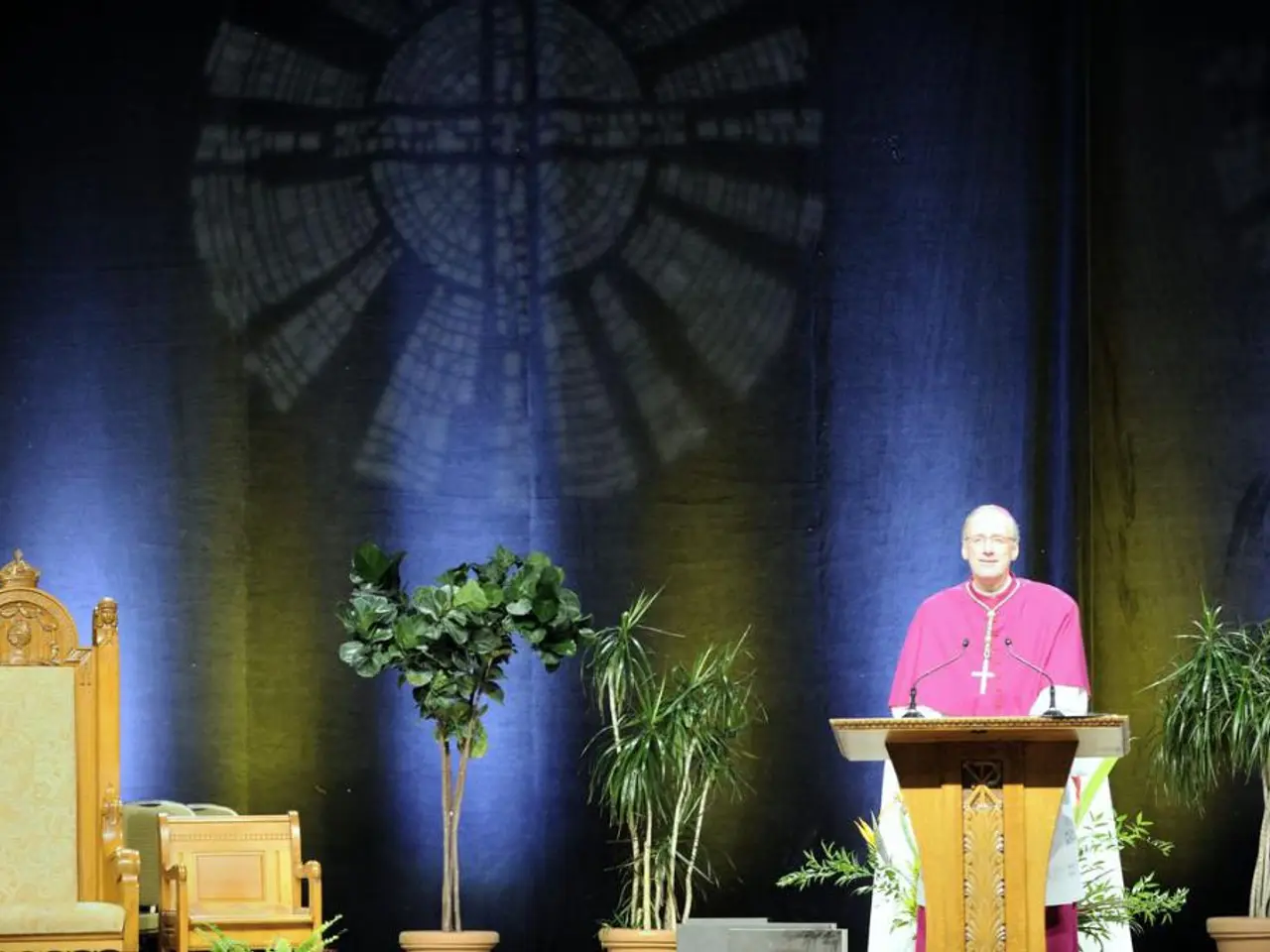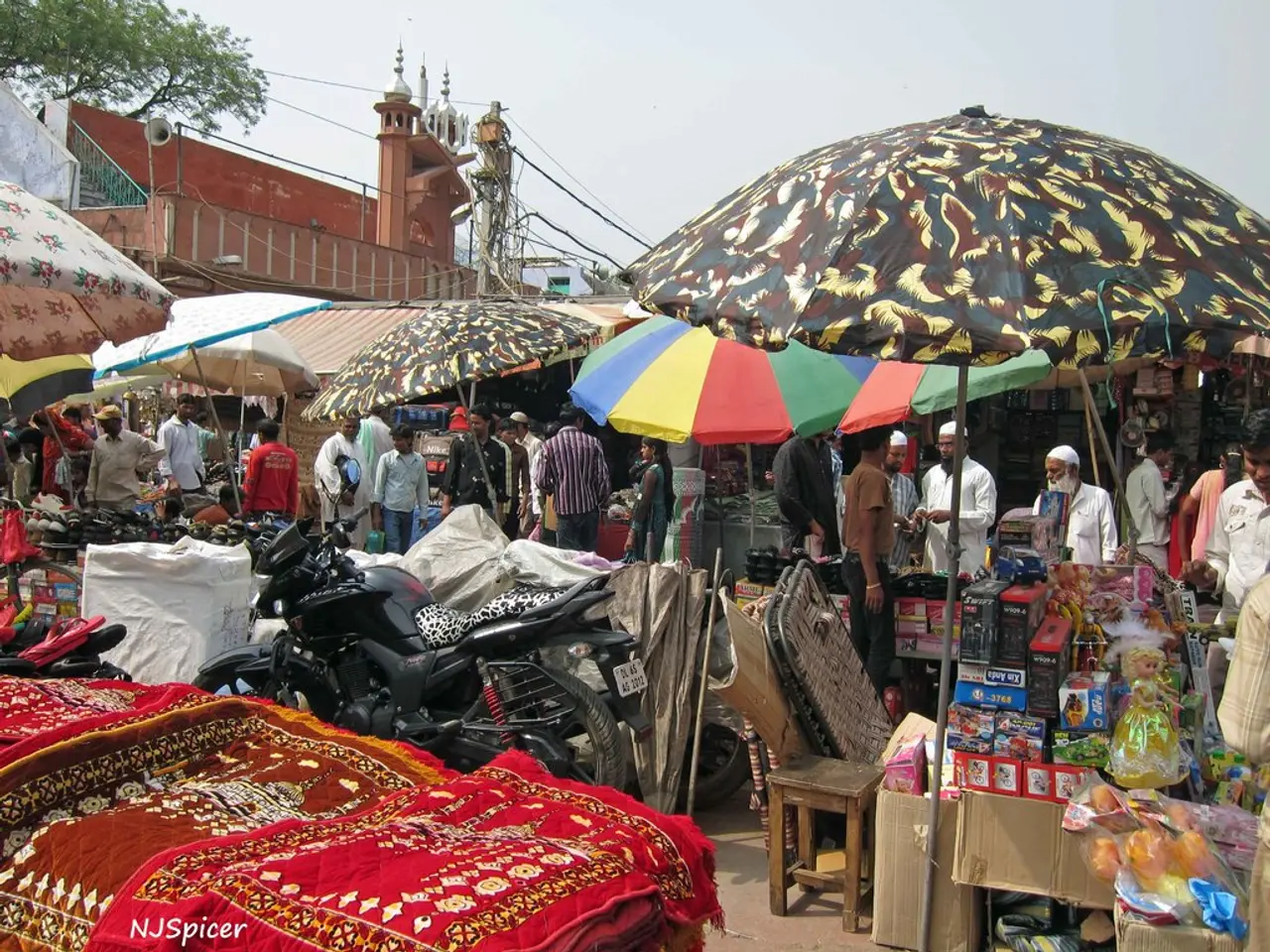Escalating Israel-Iran Tensions: Discordant Remarks from Both Sides Stir Up Heated Debate
The Rising Tide of the Israel-Iran Conflict:
The prolonged Israel-Iran skirmish has reached uncharted waters, escalating into full-blown military confrontations, inflicting considerable civilian and infrastructure harm, and fueling international stress. With Israeli airstrikes confirmed on nuclear facilities, alarm bells are sounding, and de-escalation seems elusive.
Iran's Supreme Leader Ayatollah Ali Khamenei is set to address the nation shortly, as reported by Tasnim News Agency. His last public appearance was following the initiation of Israeli airstrikes.
Iranian President Masoud Pezeshkian, in a recent cabinet meeting, emphasized the importance of national unity in the face of adversity. "If the people rally behind us, no obstacle can jeopardize the nation," he said, expressing gratitude towards neighboring countries for their support. He also asked ministers to keep communicating with their regional counterparts.
Meanwhile, Britain has temporarily evacuated family members of staff from its embassy in Tel Aviv and consulate in Jerusalem due to escalating risks. Although core operations, including essential services, continue uninterrupted.
U.S. President Donald Trump has consistently sent mixed messages. On Thursday, he expressed a desire for diplomacy with Iran, but 14 hours later, he commented that a 60-day deadline had expired. Over the weekend, he fluctuated between advocating for a deal and urging evacuation of Tehran.
Israeli military spokesman Effie Defrin announced that the Israeli Air Force has conducted 1,100 strikes in Iran over the past five days, asserting they are "operating freely" in Iran's airspace – a first. Defrin also emphasized that these actions are part of a broader strategy to "systematically eliminate the nuclear threat."
The International Atomic Energy Agency (IAEA) verified that Israeli airstrikes hit two significant Iranian nuclear sites. The Tehran Nuclear Research Center suffered attacks on a building manufacturing/testing advanced centrifuge rotors, while the Karaj Workshop witnessed destruction of its centers for producing centrifuge components.
In response, Iran's Ambassador to the UN in Geneva, Ali Bahreini, vowed a firm reply, stating, "We will respond with force and persistence without hesitation." Although he suggested diplomacy never dies, he added Iran no longer confides in the U.S., contesting Israel's attack had the U.S.'s tacit approval. Iran accused the U.S. of eroding its credibility and appealed to the international community to act.
Israeli Defense Minister Israel Katz escalated the rhetoric, claiming that Iran's regime teeters on the brink of collapse. He explained that Iranian symbols of power are disintegrating, including their state media infrastructure, and warned of further attacks. Earlier, he drew parallels between Iran's Supreme Leader Khamenei and the deposed dictator, Saddam Hussein.
In the wake of civilian casualties and unprecedented damage in Israel, over 1,300 Israelis are currently residing in hotels due to uninhabitable homes; close to 18,000 compensation claims have been lodged. Moreover, recent reports confirm Israeli residential and sensitive security sites have been hit – including the first confirmed downing of a Hermes drone inside Iran.
Crucially, this conflict differs from previous skirmishes with Hamas or Hezbollah, as Israel now faces consistent ballistic missile attacks, causing widespread disturbance to civilian life.
Neighboring governments watch the situation with concern. While Israel positions the conflict as a pathway to a "new era" with U.S. backing, nearby nations are apprehensive about extensive destabilization, particularly for Palestinians, who fear their dreams of sovereignty may be trampled in the process.
Across the Arab and Islamic world, there is growing consternation about ongoing Israeli military actions in Gaza, Lebanon, and Syria, and concerns that this escalation could engulf the entire region.
Detailed Background:
The current Israel-Iran conflict, since June 12, 2025, has unfolded as an aggressive Israeli air campaign to neutralize Iran's nuclear program and government leadership. Since the campaign's onset, Israeli forces have targeted key nuclear facilities, resulting in substantial damage to infrastructure and possible collateral damages nearby. Iran has responded with limited missile strikes on Israeli territory, yet its capacity to retaliate is waning, with reports indicating their missile stockpiles are depleting, and regional proxies like Hamas and Hezbollah have weakened. Israel has achieved some air superiority over Iran, allowing unimpeded air operations over Iranian territory.
Although diplomatic efforts have been made, Iranian officials have shown little inclination to negotiate an immediate ceasefire, balancing domestic and international perceptions carefully. Internationally, there is unrest over the conflict's potential to further destabilize the Middle East region and disrupt global energy supplies and security, while raising fears that the conflict could escalate if Iran chooses to retaliate or regional actors interfere more significantly.
- The increasing tension in the Israel-Iran conflict has become a significant topic in general-news, with global concerns escalating as the situation potentially destabilizes the Middle East and disrupts world energy supplies.
- The escalating Israel-Iran conflict, marked by military confrontations and civilian harm, is a pressing issue in international politics, causing alarm as it strains diplomatic relationships and raises the specter of regional instability.






